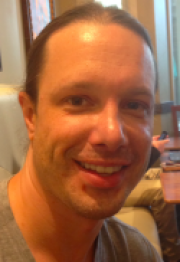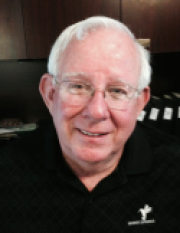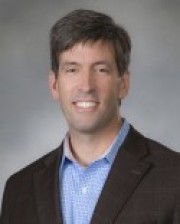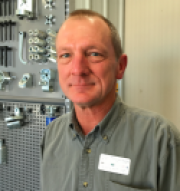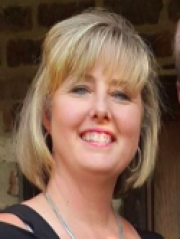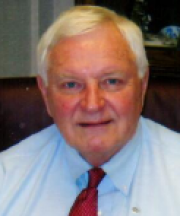Nephrologist and Medical Researcher – Mentor, Jim Bourdeau
Currently, Dr. Bourdeau is a practicing nephrologist who diagnoses and treats kidney diseases. Earlier in his career, this mentor focused on medical research and tailored his education accordingly. He considers himself fortunate to have had the opportunity to contribute to medical knowledge through his publications and also to have served his patients. In addition to discussing his medical specialty, Dr. Bourdeau talks about the various forces that are changing the way medicine is practiced in the US and how he expects the system will evolve. His article should be read by anyone interested in a medical career and/or wanting to learn more about what factors are driving health care costs. Finally, he speaks to the issue of how government regulations are affecting the way patient care is being delivered in the US.
Overview
 I grew up in Seattle, Washington, where my father was a general surgeon. One of the reasons for his choosing medicine as a career was his desire to help individuals in emergency situations. As a 10 or 11-year old, he had seen a friend die from a ruptured appendix, in an era when antibiotics were not widely available. While he enjoyed being a surgeon and interacting with his patients, my father did not like to deal with the business aspects of medicine. Consequently, he joined Group Health Cooperative of Puget Sound, one of the first large prepaid health maintenance organizations (HMOs) in the United States. Unlike private practitioners who charged their patients fees for the services provided, he worked for a salary. I admired my father’s dedication to his patients and his willingness to earn less income in order to have more time to be better able to serve them.
I grew up in Seattle, Washington, where my father was a general surgeon. One of the reasons for his choosing medicine as a career was his desire to help individuals in emergency situations. As a 10 or 11-year old, he had seen a friend die from a ruptured appendix, in an era when antibiotics were not widely available. While he enjoyed being a surgeon and interacting with his patients, my father did not like to deal with the business aspects of medicine. Consequently, he joined Group Health Cooperative of Puget Sound, one of the first large prepaid health maintenance organizations (HMOs) in the United States. Unlike private practitioners who charged their patients fees for the services provided, he worked for a salary. I admired my father’s dedication to his patients and his willingness to earn less income in order to have more time to be better able to serve them.
While in high school, I began to contemplate what type of career I wanted to pursue. For me, there were several priorities. First, I wanted a career that would always be needed. Medicine fit that criterion. Second, I wanted a career in which I would be intellectually challenged throughout my professional life. From observing my father, I observed that he was truly a student for life. Finally, I wanted to help other human beings by using my knowledge. As much as any career, medicine offered this opportunity. There were no misconceptions on my part as to how hard I would have to study and work to be a successful physician. As the son of a surgeon, I saw first hand the hard work and time commitment that were required for him to be successful. I also observed that, as a byproduct of these efforts, my father received respect and admiration from both his patients and coworkers. While my father encouraged me, he never pushed me to become a doctor. I decided on my own at the end of my junior year in high school to become a physician based on my own assessment of medicine as a career.
When I graduated from high school in 1966, I matriculated into the Honors Program in Medical Education (HPME) at Northwestern University. Each year, the HPME accepted 25 high school students directly into medical school. These students were immersed in a two-year undergraduate curriculum focused on the natural sciences and mathematics and, provided that satisfactory academic progress was made, began medical school thereafter. . Being accepted into this program helped me believe that I could succeed in becoming a doctor. During my first two years, I did well in mathematics and chemistry and was encouraged to change my major from pre-medicine to physics. But my commitment to medicine remained firm, and I remained within the HPME.
The encouragement that I received to study physics opened my mind to the possibility of a career in academic medicine, which would provide an opportunity to do research in a medical field. Then, Northwestern University Medical School was one of the first to offer a combined MD/PhD program under the sponsorship of the National Institutes of Health Medical Scientist Training Program (MSTP). During my final undergraduate year, I was offered the opportunity to participate in the MSTP, and I enthusiastically accepted. To help pay for my training, I applied for and was awarded a pre-doctoral fellowship in experimental pathology.
In sum, I pursued my post-high school studies for eight years between 1966 and 1974 and obtained three degrees, including a Bachelor of Science in Medicine, a Ph.D. in Experimental Pathology, and an MD with emphasis in Internal Medicine.
How did I choose the topic for my Ph.D. thesis? Because of my knowledge of the plight of patients suffering from cancer, which was first learned from my father, I considered specializing in oncology. At the time, Northwestern did not have great strength in this field of research so to pursue such a career would have meant moving to another medical school. I was not prepared to make that change so refocused my interests toward research in heart disease. A prominent pathologist in the field of experimental myocardial infarction was working at Northwestern then but his laboratory was so crowded that there just was no opportunity for me. Fortunately, I was able to find a laboratory in which kidney physiology and pathology were being studied and in which I could do the work for my doctoral dissertation. I committed myself to studying how kidney tubules transport and digest blood proteins and was able to not only complete my thesis but to publish three papers in this field before returning to the medical school to complete my clinical training. My years in graduate school completing my research training whetted my appetite for further research training and a career in academic medicine.
After graduation from medical school, I chose to do an internship and residency in internal medicine. I was fortunate to be accepted into the training program at the Peter Bent Brigham Hospital in Boston (one of Harvard University’s teaching hospitals). I completed that training in two years and then was accepted as a research associate in the Laboratory of Kidney and Electrolyte Metabolism at the National Heart, Lung, and Blood Institute in Bethesda, Maryland, where I worked for three years doing original research. I published several papers dealing with the mechanisms and hormonal control of calcium transport by kidney tubules and also completed my board examination in internal medicine.
My first full-time faculty position was in the Department of Medicine at Northwestern University. My wife and I moved to Chicago after my post-doctoral training because her father was ill, and we wanted to be close to her family. Following faculty positions at both Northwestern and the University of Chicago, during which I primarily conducted basic research in kidney physiology, I moved to the University of Oklahoma Health Sciences Center in August 1990. The Chicago years were both the best and the worst of times. My scientific career flourished, I passed my board examination in nephrology, and our children brought us great joy. Sadly, my wife developed breast cancer and succumbed to this disease in December 1989. When the teaching hospital at which I was located fell on difficult financial times in the late 1980s, it became clear that I would need to find a new environment to sustain my academic career. My choice was to join the Department of Medicine and the Oklahoma Center for Molecular Medicine at the University of Oklahoma Health Sciences Center in August 1990. Given the demands of obtaining grants to sustain my research funding, the clinical care of patients on the nephrology service, and a new family after remarrying in Oklahoma, I chose to narrow my professional activities by transitioning to full-time private practice.
I enjoyed clinical medicine and had an opportunity to join a nephrology practice in Wisconsin. We moved to suburban Milwaukee and stayed for two and one-half years but it became clear to me that my colleague and I would have difficulty staying together long term. When an opportunity became available to move to Tulsa in 1997, I took a position with one of the nephrology practices that has merged to become Nephrology Specialists of Oklahoma. Altogether, I have practiced here for almost 18 years and will retire at the end of April 2015.
The Practice of Nephrology
There are currently 14 physicians and 3 mid-level providers in our group practice. My principal responsibility now is that of Medical Director of the Kidney Transplant Program at Saint Francis Hospital in Tulsa. I also see patients in both freestanding dialysis centers and in one of our offices. Presently, I am transitioning into retirement but when I was an active partner, I also shared equally with my colleagues doing hospital rounds, taking night and weekend call, and working in our group’s’ dialysis centers.
To provide comprehensive nephrology care requires a group practice. In addition to the activities mentioned above, our practice also staffs a vascular access center to take care of the arteriovenous fistulae and grafts and hemodialysis catheters that are necessary to deliver blood to and return blood from artificial kidneys in the dialysis machines. Our practice treats patients at six hospitals in Tulsa and one in Muskogee. At least one nephrologist has to be on call at all times in a large hospital. Kidney injury and failure is common and can occur at any time of day or night. Common causes include heart attacks, septic shock from severe infections, complications from chemotherapy, and diabetes or autoimmune diseases. When patients are being cared for in the hospital, we are also ordering tests, performing kidney biopsies and placing special types of catheters for hemodialysis. (In the recent past, given the volume of patients seen and the size of the patient census, we have come to rely on interventional radiologists and surgical assistants to help with the kidney biopsies and catheter placements.)
Patients who have received a kidney transplant require frequent follow up visits. Our practice does these on Mondays and Thursdays in a hospital-based post-transplant clinic.
Our group is large enough to require a chief of operations to manage the business aspects. This individual handles the purchase of specialized equipment, the management of the office personnel, long-term business planning, and oversight of the finances. An advantage of having such an individual is that it allows the physicians to concentrate on the practice of medicine.
One’s education never ends when you are a doctor. You have to be constantly learning and improving your skills, and you have to be re-certified every ten years by your specialty society. You also will be regularly evaluated by your peers, including the partners in your practice. So expect to be a lifelong student.
Changes Taking Place in the Practice of Medicine
The United States spends about 18% of its GDP on health care, substantially more than what is spent in other developed countries. It is projected that if health care costs are not controlled, this fraction will be between 26 and 30% by 2040. Understandably, this level of spending is believed to be unsustainable by our economy. Forces at play as physicians, hospitals, insurance companies and the government try to lower health care costs include:
Electronic medical records (EMRs)
While in theory this should allow information about patients to flow freely among medical providers and save money, the transition has not been smooth. Medicine is a competitive business, and there are several major companies trying to get their methodology adopted as a standard. Until this happens, it is difficult to share information outside of your own practice or hospital if other providers don’t use the same protocol. Establishing one common protocol would make the transition to EMRs more efficient. Also, the technology is new, and doctors have to train to use it effectively. While this transition is going on, it is taking more–not less–time for doctors to do the data entry compared to the old paperwork, which for now leaves less time with patients.
Associated with EMRs is the issue that all computer systems have with how to best handle, store, and retrieve data. For example, it is cheaper to store data in the cloud compared to buying and maintaining your own servers. But storage in the cloud is slower getting information to the doctor’s screen than if it was maintained on a dedicated server in the office at this stage of the technology’s development, which means cloud storage makes the doctor less productive when dealing with EMRs. Cloud storage makes economic sense if it can compete with a server’s speed. But if the improvements in speed don’t come, it will likely require more expense for a practice to purchase and maintain their own servers. This realization that all patient’s records are going to have to be EMRs and the expense of maintaining these systems is a one of the factors that is forcing more and more private practice physicians into group practice.
Changes in physician reimbursement
While many groups are independent and have a business organization much like any commercial partnership, more clinics and hospital are hiring physicians as employees and paying them salaries that are less than what physicians previously earned in private practices or independent groups. I believe that this trend will continue as the expense of maintaining a private practice increases. The latter is driven by the costs of EMRs and new associated equipment, the costs of increased documentation required by insurance companies and the government, and the need for more administrators to take care of the regulatory requirements. So, while being a doctor will still be a high paying job in our society because of the extensive training and hard work involved, I don’t believe it is going to be as financially rewarding in the future as it has been in the past.
Medical malpractice issues
Medical malpractice attorneys and insurance policies are a necessary part of how medicine is practiced. The former provide checks on the behavior of physicians and surgeons and the latter provide coverage for mistakes that may occur during the course of providing medical care. The price of medical malpractice insurance is a function of the number and size of lawsuits that are successful, is not trivial, and has added to the cost of medical care. However, another factor beyond the size of the settlements that that has driven up the cost of delivering medical care is the fear of the threat of a lawsuit. This fear motivates doctors to practice ‘defensive medicine.’ In other words, some diagnostic testing is done to ‘defend’ the doctor against a potential lawsuit, as opposed to its being necessary to arrive at a correct diagnosis. This approach to practicing medicine adds to its cost.
My colleagues and I believe that patients should have legal recourse if there was maltreatment but we also believe that there should be appropriate checks and balances on frivolous lawsuits that raise the cost of medical care for all Americans. One approach would be to create rules that would compensate doctors (by the plaintiff) for the time and legal fees necessary to defend these unsuccessful lawsuits. Another approach would be a state-regulated board that screens malpractice lawsuits before they proceed in the court system. Finally, there should be some cap on jury awards that strikes a fair balance. A few states are passing legislation that will address these issues but more states need to follow suit. If a solution is not achievable at the state level, federal regulations should be adopted to equitably control costs related to medical malpractice.
Patient accountability
Patients should have financial incentives to take better care of themselves and to behave responsibly. For example, we are seeing an increased incidence of chronic kidney disease as a result of diabetes mellitus. Type II diabetes is a disease that can be caused by lifestyle choices that result in obesity, such as lack of exercise and poor eating habits. Lifestyle choices also can cause heart and lung disease. At some point, there need to be both positive and negative financial incentives for individuals to behave responsibly in the area of personal health. For example, higher health insurance premiums for failure to achieve and maintain an appropriate body weight, for smoking, and for excessive consumption of alcohol and/or use of recreational drugs. These diseases are expensive to treat, and individuals who bring these conditions upon themselves need incentives to behave in healthier ways.
Manpower shortage in nephrology
Fewer physicians are choosing to specialize in the field of nephrology even though the demand is increasing. For fellowships beginning in July 2015, only 66 of 134 nephrology fellowship programs filled their available positions. Of the applicants, only 80 of 356 were graduates of American medical schools. Given the increasing incidence of kidney disease, it is critical that more incentives be provided for physicians to choose this specialty.
Personal Qualities of a Good Doctor
- You must truly care about people and be motivated to help them, independent of financial rewards. If you are just motivated by money, you will view patients as a ‘billing opportunity’ and not as someone who needs your care.
- Intelligence, an active curiosity, and a desire to constantly learn and acquire knowledge are essential so that you can keep abreast of what is happening in medicine and in your specialty.
- Being a doctor is like being a detective. You are trying to reach the correct diagnosis from a set of medical facts acquired from the patient’s history, physical examination, and diagnostic testing. One needs an analytical mind and a desire to be good at problem solving.
- You have to be motivated and self-disciplined to commit to long hours of studying, not only to become a doctor but afterwards as a practicing physician. You will be a student for life.
- Some specialties, such as surgery, require special physical attributes like good hand-eye coordination and the ability to spend hours on your feet in an operating room.
How to Prepare to Become a Doctor
You should first look at yourself and your personal strengths and weaknesses. Number one, you must be intelligent. The minimum grade point average you will need as an undergraduate in college is 3.4 and you should be capable of achieving a 3.6 to maximize your chances of getting into medical school. To realistically know whether or not you can complete academically in college, it is helpful to challenge yourself in high school by taking the hardest mathematics and science courses. Taking these classes will also help you decide if you have the work ethic and stamina necessary to complete the courses required to become a doctor.
If possible, you should spend some time with a doctor to see from first-hand observation if it is a career that appeals to you. A neighbor’s son recently shadowed me during several of my workdays to observe what I did in the office and dialysis unit. He was able to meet with my patients and to observe my encounters. Patients will usually agree to the presence of a student observer, especially when they know that the student is interested in a medical career. Many of my colleagues will allow and encourage students to make rounds with them in this way.
Medical school is very expensive. You should develop a financial plan before you get started. One approach to help control the cost is to attend a medical school supported by your own state college system. In general, state-supported schools are less expensive than the private schools. Based on my experience, the name of the medical school is secondary once you have graduated and are practicing. Your effectiveness as a physician depends on your abilities and how you develop them and not on the name of the medical school from which you graduated. In my opinion, it is unlikely that going to an expensive private school will make you a better doctor. You should also explore the different scholarships and grants that are available. Scholarships paid for a large part of my education. Do your research and look into all of the grants that are available for medical students in your area. If you are open to a career that begins in the armed forces, a military option exists whereby one of the branches will pay for your schooling in exchange for your commitment to serve after graduating. Finally, some medical schools (Northwestern University being one example) are attempting to develop large endowments that will allow them to eliminate tuition for medical students. You can count on such programs expecting exceptional academic performance for providing such an opportunity.
Summary
I have thoroughly enjoyed my career in medicine. It has provided me the opportunity to contribute both through research and patient care. Even though I believe that the financial rewards of being a doctor in the future will be lower than those enjoyed historically, I also believe that doctors will always earn a good living. Great satisfaction comes from helping people who are sick and being able to make a difference in their lives. I also believe that doctors will maintain a respected position in our society because of their extensive training, their significant financial investment in their education, and the long hours away from their families. I encourage those of you with an active curiosity, self discipline, and a desire to help your fellow man to consider a medical career.
US Bureau of Labor Statistics Data
There were 307,220 physicians and surgeons in the US based on the Bureau’s last survey in 2013. About half worked in private or group practices while about a third worked in hospitals and about ten percent worked for Federal and state governments.
The mean annual wage for physician and surgeons in the US was $187,200 in 2013.
Wages vary consider depending on geographical location of the doctor’s practice.




